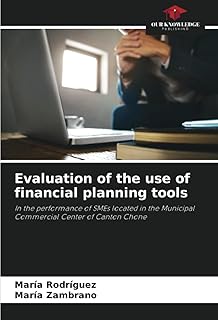Paraplanning, often misunderstood and underestimated, has evolved into a distinct career path with its own set of skills and responsibilities. The notion that paraplanners are merely administrative support is outdated, as they play a crucial role in financial planning and client service.
Historically, paraplanning emerged as an extension of administrative tasks within financial services. Initially undervalued and lacking specific qualifications, paraplanners were perceived as a cost rather than an asset to businesses. However, over time, their importance became evident as they allowed financial planners and advisers to focus on client interactions, leading to a shift in perception.
Today, paraplanners are recognized as professionals in their own right, with many holding advanced qualifications such as Chartered status and Certified Financial Planner (CFP) accreditation. Their role varies across organizations but is instrumental in enhancing client experiences and supporting business operations.
Contrary to misconceptions, paraplanners are not mere paper-pushers but strategic partners in the financial planning process. Their involvement allows advisers to concentrate on building client relationships while ensuring technical aspects are managed efficiently. This collaboration results in a holistic approach to client service.
Despite similarities in qualifications, paraplanners and financial advisers serve distinct functions within a business. Each contributes unique skills that complement one another, forming a cohesive team dedicated to client success. This synergy highlights the significance of paraplanners in the financial advisory landscape.
Businesses that have embraced paraplanning understand its value in delivering comprehensive financial advice. Whether in-house or outsourced, paraplanners contribute significantly to the financial planning process, enriching client interactions and outcomes. Their role goes beyond administrative tasks to encompass strategic support and technical expertise.
Paraplanning has evolved into a specialized career path with professionals like Caroline Stuart, a chartered financial planner and owner of Sparrow Paraplanning, leading the way. The increasing recognition of paraplanners’ contributions underscores the importance of their role in modern financial services.
As paraplanning continues to evolve, businesses recognize the integral role paraplanners play in delivering tailored financial solutions to clients. The shift from viewing paraplanners as support staff to essential team members signifies a broader industry acknowledgment of their expertise and value.
Overall, the transformation of paraplanning from a misunderstood role to a respected profession highlights the industry’s recognition of the unique skills and contributions paraplanners bring to the financial advisory sector.
📰 Related Articles
- Walsave Credit Union: Community Support & Financial Empowerment
- Unveiling the Vital Role of Paraplanners in Financial Advisory
- Survey Reveals Vital Role of Paraplanners in Financial Advisory
- Sequoia Expands Financial Services with Clique Paraplanning Acquisition
- Role-Based Cybersecurity Training Vital for Financial Institutions’ Security






